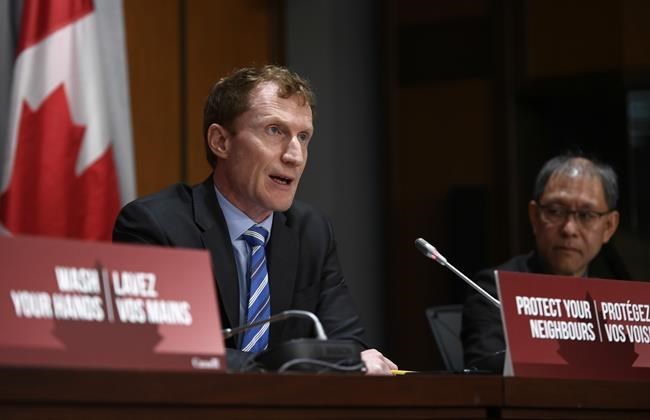OTTAWA — The federal minister of Indigenous Services says even though the number of COVID-19 cases on reserves remains low, no one should be complacent.
Marc Miller told reporters during a news conference on Friday that borders and checkpoints are good for identifying people with COVID-19 entering a community, as well as making people aware of the disease, but the checkpoints can lead people to believe they are safe.
He says the remote locations of many Indigenous communities and aggressive measures taken by their leadership have helped keep out the new coronavirus, but they could be more adversely affected due to longstanding social and economic inequities.
As of Thursday, there were 40 confirmed cases of COVID-19 on First Nation reserves and five cases in the Nunavik region of northern Quebec.
"No one should take great comfort in the fact there have been few cases to date," Miller said.
Dr. Tom Wong, chief medical officer of public health at the ministry, told the news conference it's very important to keep COVID-19 off reserves, and to use contact tracing to encircle cases that are identified.
Wong also put out a call for nurses to step forward to serve in the North, acknowledging concerns that shortages of health professionals in remote areas has led to them flying from community to community and potentially spreading the disease.
"So here is the call for the entire country. If you are a nurse or you are graduating as a nurse, please, please consider working in the North because the North needs you," Wong said.
In late March, Miller outlined $305 million that's being distributed to Indigenous communities across Canada as they battle and prepare for COVID-19.
But First Nations and Metis leaders said last week they need more financial support from Ottawa, as well as assistance with security and help acquiring protective equipment.
Assembly of First Nations National Chief Perry Bellegarde said First Nations must also be part of all decision-making when it comes to determining how resources are allocated.
Indigenous leaders urged government to look at the unique needs of Indigenous business owners, noting many Indigenous business owners won't be able to meet the $50,000 minimum payroll requirement for loans under the Canada Emergency Business Account.
Miller said Friday that communities can choose to how to use the money, such as purchasing isolation units and personal protective equipment.
He said supports for food security and Indigenous businesses are also in the works.
"Let me be clear. This is just the beginning. We know more support will be needed. And we will be there to make sure no Indigenous community is left behind," Miller said.
This report by The Canadian Press was first published April 10, 2020.
The Canadian Press
Note to readers: CORRECTS para 4, replaces "Nunavut" with "Nunavik."




